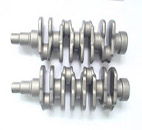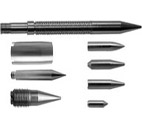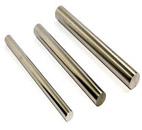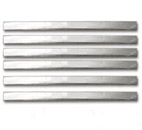
Aerospace
SAM tungsten alloys are generally used by aerospace designers for balancing components or reducing vibration. The high density of tungsten materials allows maximum sensitivity from optimum mass and is particularly valuable in situations where a large mass has to be contained in a confined space.
Examples of applications where tungsten has been used include:
Flight control surfaces
Components such as ailerons, flaps, rudders and elevators are fitted with counterweights to optimize their performance.
Trim weights
Used to achieve final balance in an individual component, assembly or complete aircraft.
Anti-flutter weights
Used to reduce any tendency to flutter in wings and other components.
Ballast weights
These weights are frequently used in development or prototype work to simulate the weight of equipment or passengers during test flights.
Propeller blades
Tungsten counterweights are designed into a propeller fail-safe system to prevent overspeeding.
Rotor blades
Helicopter rotor blades require both static and dynamic balancing.
Inertial systems
Rotating parts in gyroscopic controls are often made from tungsten material because of its high angular momentum. These applications are typically found in avionics and missiles.
Anti-Vibration Weights
Tungsten weights have been used to deaden vibration in applications including control sticks and riveting tooling. The same principle is used to increase passenger comfort by reducing vibration within the body of the aircraft - this is especially valuable in turboprops and helicopters.













